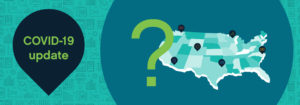As healthcare organizations track towards value-based reimbursement models, analytics will continue to play an important role to keep them financially viable. However, many healthcare organizations struggle to make the most of their data and tackle revenue cycle management (RCM).
We recently spoke with Tom Schaal, director of product management at MedeAnalytics, to gather insight on how healthcare organizations can master RCM through their available data. Below are his tips:
1. What end goals should healthcare organizations keep in mind when addressing RCM?
Tom Schaal (TS): Ultimately, the end goal in RCM is working smarter, not harder. Hospital staffs are routinely stretched thin. Intelligently designed analytical tools can be used to highlight opportunities and outliers, and focus staff attention to the most impactful workflow and resolution strategies.
2. Data can be overwhelming – what are the top focus areas for healthcare organizations?
TS: Having access to data is not in and of itself meaningful. In fact, it is oftentimes overwhelming. Organizations need to focus on key objectives that are most important and pressing. Leveraging analytical tools that are easy to use and configure to meet specific business and clinical objectives is key.
3. How can healthcare organizations implement, align and strategize around data?
TS: The key here is transparency. Typically, healthcare organizations use different tools across different teams that make it incredibly difficult for any organization to land on a single source of truth. The value of this central source of easily accessible data that people within the organization trust cannot be understated. It’s a game-changer.
To learn more about how MedeAnalytics can help improve your RCM strategy, visit our Business Office solution page. You can also visit Becker’s Hospitals Review to see Tom’s first tip.
Get our take on industry trends
Avoid COVID-19 modeling pitfalls by eliminating bias, using good data
COVID-19 models are being used every day to predict the course and short- and long-term impacts of the pandemic. And we’ll be using these COVID-19 models for months to come.
Read on...Population Health Amid the Coronavirus Outbreak
In speaking with many colleagues throughout the provider and payer healthcare community, I’ve found an overwhelming sense of helplessness to the outbreak’s onslaught. This is exacerbated by the constant evolution of reported underlying medical conditions that indicate a higher risk of hospitalization or mortality for a coronavirus patient.
Read on...COVID-19 and the Financial Storm Ahead for Providers
Across the country, healthcare organizations are seeing 40%-80% declines in monthly charges with some of the most profitable services lines only seeing 20% of their normal monthly volumes during the pandemic.
Read on...3 Steps Any Healthcare Organization Can Take to Improve Enterprise Analytics
By Kristin Weir When it comes down to the most basic purpose of why organizations use analytics, it’s simple: they…
Read on...


